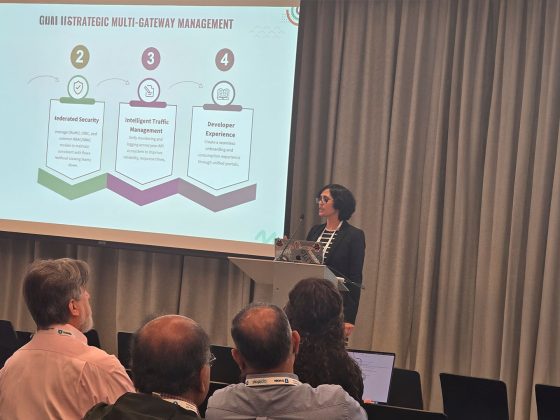The role of the CEO has always been pivotal, but in today’s rapidly changing business environment, it has become increasingly complex and multifaceted. CEOs are no longer just stewards of financial performance—they are visionaries, culture-builders, and agents of change. They must navigate a landscape defined by technological advancements, shifting stakeholder expectations, and global challenges. This article explores how the role of the CEO has evolved and highlights the strategies successful leaders use to thrive in a dynamic business world.
From Command-and-Control to Collaborative Leadership
In the past, CEOs were often seen as authoritative figures who dictated strategy and decisions from the top. While decisiveness remains important, today’s successful CEOs recognize the value of collaboration. They engage their teams, solicit diverse perspectives, and empower leaders at all levels of the organization.
For example, Satya Nadella’s leadership at Microsoft exemplifies this shift. Upon becoming CEO in 2014, Nadella transformed Microsoft’s culture from one of internal competition to one of collaboration and innovation. His focus on listening, empathy, and teamwork has been instrumental in revitalizing the company and driving its growth.
Collaboration also extends beyond the organization. Modern CEOs often work closely with external stakeholders, including investors, customers, and regulators, to align on shared goals and build trust.
Balancing Short-Term Performance with Long-Term Vision
One of the greatest challenges for CEOs is balancing immediate financial performance with long-term strategic goals. Shareholders often demand quarterly results, but focusing solely on short-term metrics can undermine the organization’s future.
Jeff Bezos famously prioritized long-term thinking at Amazon, often emphasizing that decisions made today might not pay off for years. This approach allowed Amazon to invest heavily in innovation, such as AWS and Prime, which eventually became key drivers of the company’s success.
Today’s CEOs must adopt a similar mindset, finding ways to deliver consistent results while laying the groundwork for sustained growth. This requires clear communication with stakeholders about the value of long-term investments and the patience to see them through.
The CEO as a Technology Advocate
Technology is a defining force in the modern business landscape, and CEOs are increasingly expected to be technology advocates. Understanding how emerging technologies like artificial intelligence, blockchain, and data analytics impact their industries is essential for staying competitive.
For example, Elon Musk’s leadership at Tesla highlights the importance of technological vision. Musk’s commitment to innovation in electric vehicles, autonomous driving, and renewable energy has not only disrupted traditional industries but also set new benchmarks for sustainability.
CEOs don’t need to be technologists, but they must foster a culture of curiosity and innovation, ensuring their organizations are agile and prepared to adopt transformative technologies.
Championing Organizational Culture and Purpose
In an era where employees and customers alike prioritize values and purpose, CEOs must play an active role in shaping organizational culture. They set the tone for inclusivity, integrity, and collaboration, ensuring that the company’s actions align with its stated mission.
Howard Schultz, former CEO of Starbucks, is a prime example of a leader who prioritized culture and purpose. Schultz championed employee well-being through initiatives like healthcare benefits and stock options, fostering a sense of community and loyalty. This commitment to culture not only strengthened Starbucks’ internal operations but also enhanced its brand reputation.
Modern CEOs must recognize that a strong culture is a competitive advantage. By embodying the organization’s values and leading with authenticity, they inspire teams and build trust among stakeholders.
Navigating Global Challenges and Crises
The COVID-19 pandemic underscored the importance of agility and resilience in leadership. CEOs were forced to make quick decisions about remote work, supply chain disruptions, and employee safety, often with incomplete information.
Leaders like Jacinda Ardern, New Zealand’s former prime minister, demonstrated how empathy and clear communication can guide organizations and nations through uncertainty. While Ardern’s role was political, her approach offers valuable lessons for CEOs navigating crises.
Modern CEOs must be prepared to lead through volatility, whether it’s a global health crisis, economic downturn, or industry disruption. This requires adaptability, strategic foresight, and the ability to inspire confidence in times of uncertainty.
Key Skills for the Modern CEO
The evolving role of the CEO demands a diverse skill set. Successful leaders today must possess:
- Emotional Intelligence: The ability to connect with employees, customers, and stakeholders on a personal level.
- Strategic Vision: A clear understanding of where the organization is headed and how to get there.
- Resilience: The mental toughness to navigate challenges and setbacks.
- Technological Savvy: A willingness to embrace and invest in innovation.
- Communication Skills: The ability to articulate vision and inspire others.
These skills enable CEOs to lead with confidence and adapt to the demands of a dynamic environment.
The role of the CEO has evolved from a traditional figurehead to a multifaceted leader who drives vision, culture, and innovation. In a world defined by rapid change, CEOs must embrace collaboration, prioritize long-term thinking, and champion organizational values.
By adapting to these demands, today’s CEOs not only steer their organizations toward success but also set the standard for leadership in a competitive business landscape. The path is challenging, but for those who rise to the occasion, the rewards are transformative—for their organizations, their industries, and society as a whole.
Image Source: Unsplash.com









